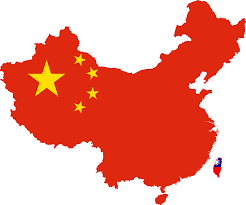As the year 2024 nears its end, President Xi Jinping has called for strong and focused efforts to meet China’s economic and social targets. During his recent tour of Hubei Province, Xi highlighted the importance of steady progress in economic initiatives, building on similar messages conveyed in his previous visits to other provinces. These directives reflect China’s intention to reach its goal of around 5% economic growth, an outlook that officials from the National Bureau of Statistics (NBS) echoed with optimism in mid-October. The confidence stems from recent economic data indicating a stable foundation and signs of recovery. For instance, the manufacturing sector showed improvement with the Purchasing Managers’ Index reaching 50.1 in October, signalling a return to growth.
In recent quarters, China has shown resilience, with GDP growth of 0.9% from the previous quarter and a cumulative 4.8% growth over the first three quarters. This steady trajectory has led foreign institutions, including Goldman Sachs and JP Morgan, to raise their forecasts for China’s 2024 GDP. As Chinese economists note, the country’s primary macroeconomic indicators, such as employment and inflation, suggest that the economy is stable, with high-tech industries in particular driving forward momentum. Investment in technology-intensive industries continues to grow faster than other sectors, signalling a shift toward a more efficient and quality-focused economy.
One core element of China’s economic strategy has been systematic reform aimed at strengthening foundations for growth. To this end, recent policy moves have been implemented to reduce housing mortgage payments, boost consumption, and support the property market. The People’s Bank of China has reformed the mechanism for adjusting mortgage rates, creating more flexibility for borrowers. These adjustments, complemented by other economic measures introduced since September, are intended to deliver both short-term benefits and long-term structural improvements. According to Tsinghua University’s Dong Yu, these policy adjustments mark a significant shift in China’s approach to macroeconomic management, blending immediate intervention with future-focused reforms.
At the same time, China is enhancing its efforts to support high-tech industries and upgrade consumer goods production. The ongoing opening-up of the capital market and reforms aimed at promoting private enterprise illustrate the country’s commitment to a balanced approach between reform and stability. The case of Shenzhen’s Futian district illustrates the positive impact of these reforms, with notable growth in technology-driven industries. The district’s focus on advanced production methods has led to a sharp increase in economic productivity, and new investments from international firms like Apple further highlight China’s attractiveness as a technology hub.
Further boosting market confidence, China’s International Import Expo saw contracts signed in the areas of semiconductors and automotive technology, indicating strong international interest in China’s market. Officials have also hinted at additional policies to encourage growth, with the forecast suggesting a possible upward trend as the year concludes. Business activity is showing signs of recovery as well, with industrial output rising in September and property sales increasing in October. For instance, in Guangdong Province, the tech firm Shenzhen JLC Technology Group reported a surge in orders driven by artificial intelligence developments. Foreign companies, including Mercedes-Benz, are also investing significantly in China, showcasing long-term faith in the market’s prospects.
Economic confidence, according to Chinese officials, is key to achieving the growth target of 5%, but it requires dedication, resilience, and collective action. In the coming months, the focus remains on driving forward economic and social goals through a combination of reforms, business support, and policies aimed at strengthening China’s growth potential.
Fidelity China Special Situations PLC (LON:FCSS), the UK’s largest China Investment Trust, capitalises on Fidelity’s extensive, locally-based analyst team to find attractive opportunities in a market too big to ignore.

